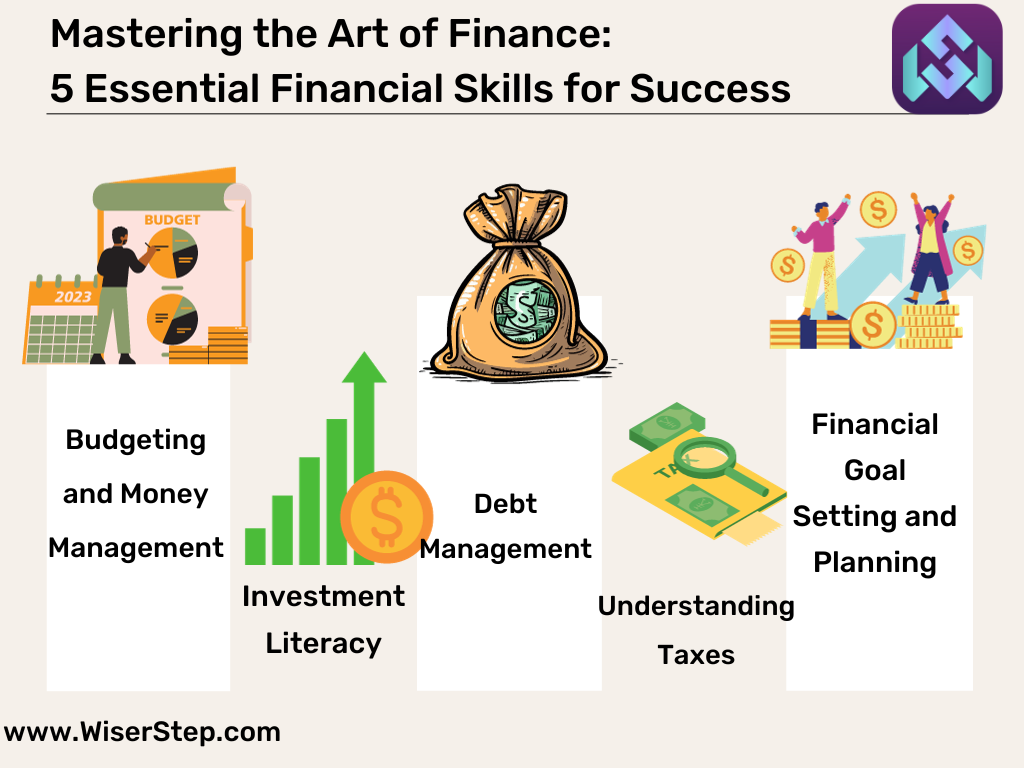In today’s rapidly changing world, financial literacy is more crucial than ever before. Whether you’re managing personal finances or steering a business, having a strong foundation in financial skills can pave the way for long-term success and stability. In this blog, we will explore the top 5 financial skills that are essential for individuals and businesses alike.
Budgeting and Money Management
The cornerstone of financial success lies in effective budgeting and money management. Understanding your income, expenses, and saving goals is vital. Create a detailed budget that outlines your monthly income sources and all expenses, including necessities and discretionary spending. Tracking your expenses helps identify areas where you can cut back, save more, and invest wisely. Through disciplined budgeting, you can build an emergency fund, pay off debts, and achieve your financial goals.
Investment Literacy
Investing is a powerful tool for building wealth over time. Whether you’re interested in stocks, mutual funds, real estate, or other investment vehicles, having a good grasp of investment principles is essential. Diversification, risk tolerance, and understanding market trends are key concepts to master. Stay updated on financial news, seek advice from experts, and consider consulting a financial advisor to develop a well-informed investment strategy tailored to your goals and risk tolerance.
Debt Management
Debt can be a double-edged sword. When managed responsibly, it can facilitate opportunities like purchasing a home or funding education. However, mismanagement can lead to financial stress and hinder your ability to achieve long-term goals. Understanding the different types of debt, such as credit card debt, student loans, and mortgages, is crucial. Develop a repayment plan, prioritize high-interest debts, and avoid accumulating unnecessary debt. By managing debt wisely, you can maintain a healthy credit score and work towards a debt-free future.
Understanding Taxes
Taxes are a complex yet inevitable part of our financial lives. Understanding the tax system, including deductions, credits, and tax-efficient investment strategies, can significantly impact your overall finances. Stay informed about tax laws and regulations applicable to your country or region. Consider consulting a tax professional to optimize your tax planning, minimize liabilities, and maximize savings. Proper tax management ensures you keep more of your hard-earned money, allowing for increased savings and investments.
Financial Goal Setting and Planning
Setting clear financial goals is essential for motivation and direction. Whether it’s buying a house, starting a business, or retiring comfortably, having well-defined goals provides a roadmap for your financial journey. Break down your long-term goals into smaller, achievable milestones. Create a timeline, allocate resources, and regularly review your progress. Adjust your financial plan as your life circumstances change, ensuring your goals remain realistic and attainable. Regularly monitoring your progress and celebrating achievements along the way will keep you motivated and focused on your financial objectives.
In conclusion, mastering these top 5 financial skills – budgeting, investment literacy, debt management, understanding taxes, and financial goal setting – empowers individuals and businesses to navigate the complex world of finance successfully. By acquiring these skills and applying them diligently, you can achieve financial security, build wealth, and create a stable future for yourself and your loved ones. Remember, financial education is an ongoing journey, so stay curious, keep learning, and make informed financial decisions to secure a prosperous tomorrow

